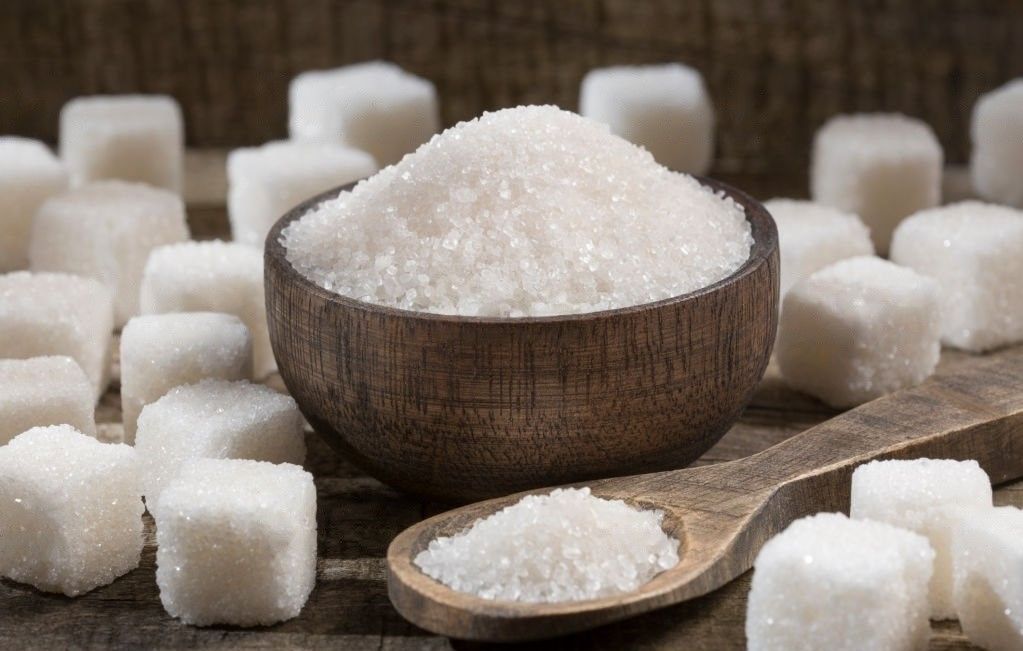How Overconsumption Of Sugar Affects Hormonal Balance in Women
Satisfy your sweet tooth with whole fruits, which include natural sugars as well as fibre and other nutrients.

Sugar is a ubiquitous part of our modern diet, but its overconsumption can have significant implications for our health. In particular, excessive sugar intake can disrupt hormonal balance in women, leading to a range of hormonal imbalances and related health issues. In this blog, we will explore the scientific research behind the relationship between sugar consumption and hormonal balance in women. By understanding how sugar affects our hormones, we can make informed dietary choices to promote hormonal health and overall well-being.
Impacts of sugar overconsumption on hormonal balance:
1.Insulin Resistance and Insulin Dysregulation:
- Overconsumption of sugar, especially refined sugars and high-glycemic index carbohydrates, can lead to insulin resistance.
- Insulin resistance occurs when cells become less responsive to the effects of insulin, resulting in elevated blood sugar levels and subsequent hormonal imbalances.
- This dysregulation of insulin can disrupt the delicate balance of other hormones, including estrogen, progesterone, and testosterone.
2. Impact on Estrogen Levels:
- Elevated insulin levels can stimulate the production of estrogen, leading to an imbalance in estrogen levels.
- High estrogen levels, known as estrogen dominance, can result in symptoms such as irregular menstrual cycles, PMS, breast tenderness, and mood swings.
- Estrogen dominance can also contribute to conditions like polycystic ovary syndrome (PCOS) and endometriosis.
3. Influence on Progesterone:
- Excessive sugar consumption can negatively affect progesterone levels, which is an essential hormone for fertility and menstrual regularity.
- High insulin levels can interfere with ovulation and disrupt the normal production and release of progesterone.
- Low progesterone levels can lead to menstrual irregularities, difficulty conceiving, and increased risk of miscarriage.
4. Testosterone Imbalance:
- Sugar intake can influence testosterone levels in women.
- Elevated insulin levels can increase the production of testosterone, leading to symptoms such as acne, hirsutism (excessive hair growth), and mood disturbances.
- Hormonal imbalances in testosterone can also contribute to conditions like PCOS.
5. Impact on Cortisol:
- Chronic high sugar consumption can contribute to chronic stress and dysregulation of the stress hormone cortisol.
- Elevated cortisol levels can disrupt the balance of other hormones, including estrogen and progesterone.
- This hormonal imbalance can result in menstrual irregularities, decreased fertility, and increased risk of adrenal dysfunction.
SUMMARY
Overconsumption of sugar can have significant effects on hormonal balance in women. The dysregulation of insulin, estrogen, progesterone, testosterone, and cortisol can lead to various hormonal imbalances and related health issues. By understanding the impact of sugar on our hormones, we can make conscious dietary choices to reduce sugar intake and promote hormonal health. Prioritizing whole foods, reducing processed and refined sugars, and adopting a balanced diet can contribute to a healthier hormonal balance. By focusing on nutrient-dense foods, low-glycemic carbohydrates, and balanced meals, you can support your body's natural hormone production and regulation.
Reducing sugar intake is a key step in restoring hormonal balance. Opt for natural sweeteners like stevia, honey, or maple syrup in moderation, and be mindful of hidden sugars in processed foods and beverages. Instead, satisfy your sweet tooth with whole fruits, which provide natural sugars along with fiber and other beneficial nutrients.
Lastly, managing stress levels is crucial for hormonal balance. Chronic stress can contribute to hormonal imbalances, including increased cortisol production. Explore stress management techniques such as meditation, deep breathing exercises, and practicing self-care to promote relaxation and reduce stress levels.
Jayti Shah is a Clinical Nutritionist with a master's degree in Clinical Nutrition and Dietetics. She is a member of the Indian Dietetic Association (IDA). Over the last 9 years, she has helped 400 clients in their clinical and weight loss journeys. She works with SocialBoat as a nutrition consultant.
At SocialBoat, we offer custom diet plans and guided workouts to help you achieve your goals in a 360-degree approach. Our gamified experience ensures that you don’t find workouts boring and we reward you for being consistent with your efforts.

REFERENCES
- Lim SS, Hutchison SK, Van Ryswyk E, Norman RJ, Teede HJ, Moran LJ. Lifestyle changes in women with polycystic ovary syndrome. Cochrane Database of Systematic Reviews. 2017;3:CD007506. doi: 10.1002/14651858.CD007506.pub4.
- Goran MI, Ulijaszek SJ, Ventura EE. High fructose corn syrup and diabetes prevalence: A global perspective. Global Public Health. 2013;8(1):55-64. doi: 10.1080/17441692.2012.736257.
- Te Morenga L, Mallard S, Mann J. Dietary sugars and body weight: Systematic review and meta-analyses of randomized controlled trials and cohort studies. British Medical Journal. 2013;346:e7492. doi: 10.1136/bmj.e7492.
- Lustig RH. Fructose: It's "Alcohol Without the Buzz". Advances in Nutrition. 2013;4(2):226-235. doi: 10.3945/an.112.002998.
- Greenwood DC, Threapleton DE, Evans CEL, et al. Association between sugar-sweetened and artificially sweetened soft drinks and type 2 diabetes: Systematic review and dose-response meta-analysis of prospective studies. British Journal of Nutrition. 2014;112(5):725-734. doi: 10.1017/S0007114514001329.
- Aeberli I, Gerber PA, Hochuli M, et al. Low to moderate sugar-sweetened beverage consumption impairs glucose and lipid metabolism and promotes inflammation in healthy young men: A randomized controlled trial. American Journal of Clinical Nutrition. 2011;94(2):479-485. doi: 10.3945/ajcn.111.013540.
- Malik VS, Popkin BM, Bray GA, Després J-P, Willett WC, Hu FB. Sugar-sweetened beverages, obesity, type 2 diabetes mellitus, and cardiovascular disease risk. Circulation. 2010;121(11):1356-1364. doi: 10.1161/CIRCULATIONAHA.109.876185.
